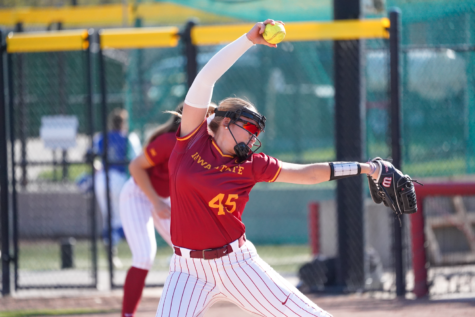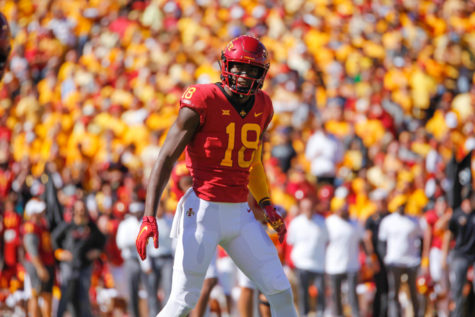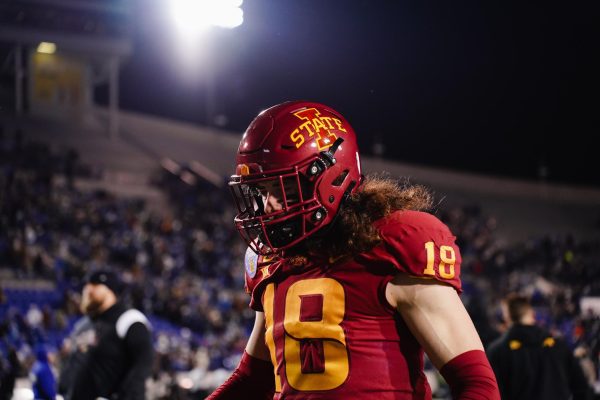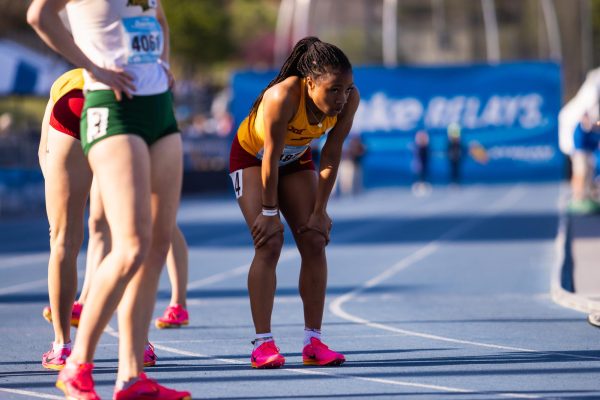Coaches split on possibility of paid athletes
February 26, 2003
The buzz on whether college athletes should be paid for their prowess, which was generated at the University of Nebraska, has reached Iowa State’s athletic department. An informal poll of ISU head coaches showed they have clashing views on whether Cyclones should get paychecks.
After attempts to reach all ISU head coaches, the Daily was able to survey seven out of the 15 ISU coaches, as well as athletics director Bruce Van De Velde. Each were asked about their opinion regarding the question of paying college athletes. Views recorded ranged from adamant opposition to those that strongly favored the idea.
The issue has received national attention after Nebraska Gov. Mike Johanns said he would sign a bill into law that would mandate payments for University of Nebraska football players.
ISU football coach Dan McCarney said he legally received a stipend when he played football at the University of Iowa in the 1970s. The NCAA outlawed the $15 stipend in 1973 to cut its costs.
McCarney said it’s strange that athletes get less money now despite higher costs.
“I definitely think that players should receive some type of stipend,” McCarney said. “Here it is 2003, and we’re not paying them anything.”
The Associated Press reported Monday that a majority of Big 12 men’s basketball coaches are in favor of paying college athletes.
Iowa State’s head coach Larry Eustachy told the Daily he’s in favor of the idea. He said his players help bring in money and a stipend of about $100 per week would help out many athletes he has coached over the years.
“They’re not the normal student,” Eustachy said. “They’re asked to do a lot of stuff outside the classroom.”
Iowa State is home to more than 400 student-athletes and many receive full-ride scholarships to attend the university. Eustachy said sometimes it isn’t enough.
“Some of these guys get some good money financial aid-wise, but when you combine it all a lot of them really, really struggle,” Eustachy said. “For some of them, with their backgrounds, they hardly have enough money to eat properly on.”
Head tennis coach Michele Conlon has mixed feelings on the issue, but said paying all student-athletes wouldn’t be easy. She said her out-of-state athletes that utilize five years of eligibility are already on full-ride scholarships worth nearly $75,000 during that time span. Conlon said the figures would be hard to handle for some schools.
Paying 400 student-athletes $100 per week adds up to an additional $40,000 per week.
“I think it would be difficult for the athletic departments across the country to come up with the funding to do it in the right manner,” Conlon said.
Eustachy even went so far as to suggest taking money out of his own pocket. The fifth-year head coach makes more than $1 million annually.
“They create a lot of revenue and a lot of people get rich over them, including the coaches,” Eustachy said. “To take a stipend out of the coach’s check — I don’t think there would be a coach in the world opposed to it. I know I wouldn’t.”
But head softball coach Ruth Crowe isn’t in favor of the idea. Neither is ISU women’s basketball coach Bill Fennelly.
“I do not believe that athletes should be getting paid,” Crowe said. “I think that we should do away with all scholarships and make everybody pay for their own education, and if they want to play, they get to play.”
Fennelly said he understands the argument for compensation, but still believes that type of thing belongs exclusively on the professional level. He said he has always wanted his players to be a part of the mainstream student body.
“Personally, I don’t see a need for it,” Fennelly said. “I think there’s enough time for them to make some money in the off-season. There are a lot of things they already get and I don’t know if paying them more than they’re already getting is the answer.”
















